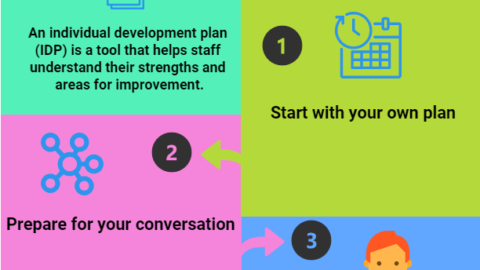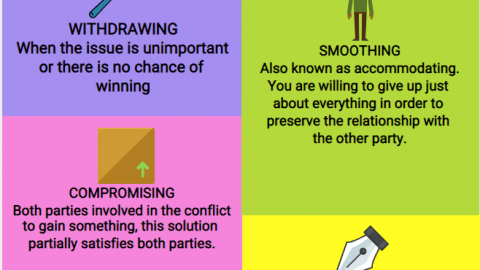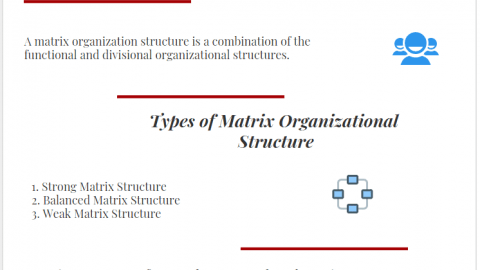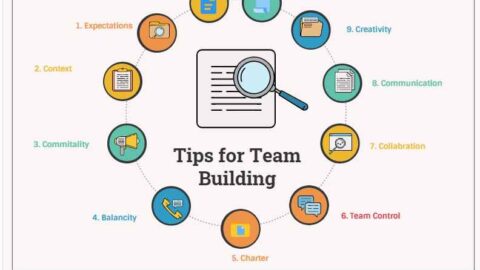The Benefits Of HR Ticketing Systems
The workplace has changed drastically in today’s digital age, and businesses had to adapt to the new environment. One of the most important aspects of modern business is having an efficient Human Resources (HR) system in place. An HR ticketing system is a great way to streamline and manage the HR process and offers many benefits for businesses.
Table of Contents
That said, this article will discuss the significant advantages of HR ticketing systems. Keep on reading!
-
Increases Efficiency
HR ticketing systems help increase efficiency by streamlining the organization’s internal processes. These systems enable HR professionals to quickly and efficiently track team member requests and inquiries and provide a central location for all HR-related information. With a ticketing system, organizations can quickly identify and address team member issues and concerns. And then, ensure that their employees receive the support they need on time.
Even better, if you click here, you will learn that many HR ticketing systems can be linked with platforms that employees are already familiar with, such as Slack. This allows employees to easily and quickly submit their requests and keep up with the status of their tickets without having to switch between multiple platforms.
2. Saves On Cost
Today, the cost of managing human resources is an essential factor in the success of any organization. An HR ticket system can lower costs by streamlining the process of managing team member issues, inquiries, and requests quickly and efficiently.
You can use the HR ticket system for various purposes. It is including keeping tabs on requests for time off, managing team member grievances, etc. It can also help manage team member onboarding and offboarding processes. While it is also ensuring that employees are appropriately processed and all necessary paperwork is completed on time.
An HR ticket system can also help automate many administrative tasks associated with managing business records and payroll. This helps reduce the time spent on manual processing and increases overall efficiency. By reducing the time used for administrative tasks, organizations can save time and money, allowing them to focus on more important responsibilities.
3. HR Ticketing Systems Improve Communication
Communication is an integral component of any business aiming to achieve long-term success. Implementing an HR ticketing system can help improve communication by allowing employees to submit requests and receive a response quickly. It can be significantly beneficial for team members working remotely or in different time zones. With a ticketing system, employees can submit requests and have them addressed promptly without waiting for a response from a manager or supervisor.
Furthermore, an HR ticketing system can help improve the company’s communications accuracy. By documenting requests and responses, employees can quickly review past conversations and ensure that their demands are being addressed. It can help streamline processes and reduce confusion, making it easier for employees to get their questions answered quickly.
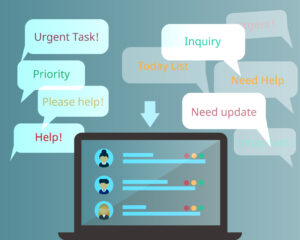
4. Helps With Data Collection
Data is a valuable asset used to make informed decisions and improve processes. By adding an HR ticketing system, companies can track and store employee-related data, such as request type, resolution time, team member satisfaction, etc. This data can be used to analyze past trends and identify areas of improvement.
For example, you can use the data collected from the HR ticketing system to determine how long it takes for specific requests to be resolved, which requests are most common, and what areas may need additional attention from HR. Additionally, you can use it to measure team member satisfaction and identify any potential issues with the HR process.
5. Improves Customer Service
One of the secrets of succeeding in business is providing excellent customer service. An HR ticketing system is an effective way to improve customer service and gain a competitive edge. By using an HR ticketing system, businesses can track customer inquiries, requests, and complaints to ensure that each one is under operation in a timely manner. This system allows companies to prioritize customer requests, assign tasks to the right people, and provide quick and accurate customer responses.
For example, a customer has a question about their benefits package. In that case, an HR ticketing system can help ensure that the customer’s query goes to the right person and that they receive an answer quickly. Additionally, an HR ticketing system can help businesses better track customer concerns and complaints. It ensures that responses are custom to the specific customer’s issue and that the customer is happy with the outcome.
Conclusion on HR Ticketing Systems
So, implementing an HR ticketing system may seem daunting. But the benefits are undeniable. From improved communication and collaboration to efficiency and cost savings, an HR ticketing system can help to streamline operations and maximize resources. However, it would be best to research to ensure that you choose the best system for your organization. With the right system in place, you can significantly impact your business.
An effective system should make it possible for end users to interact via a variety of channels.Including phone, email ticketing systems, and text messaging. This communication become central by the system, and a uniform interface pops up the HR support staff so that they may see it. With these fundamental components, an HR help desk ticketing system can guarantee that each and every employee inquiry is visible. Tickets belong to the member of the team who is most capable of resolving them quickly and effectively.
Hence, choose the tool that best suits your requirements with demonstrations and free trial versions. Test the program with the target audience before deploying it in production. Ensure that no testing-related problems develop that would cause you to choose a different product.

Magdalena Polka is a Business Solution Designer and an Information Technology / Project Management consultant and author with over 15 years of software development, management and project management experience.



